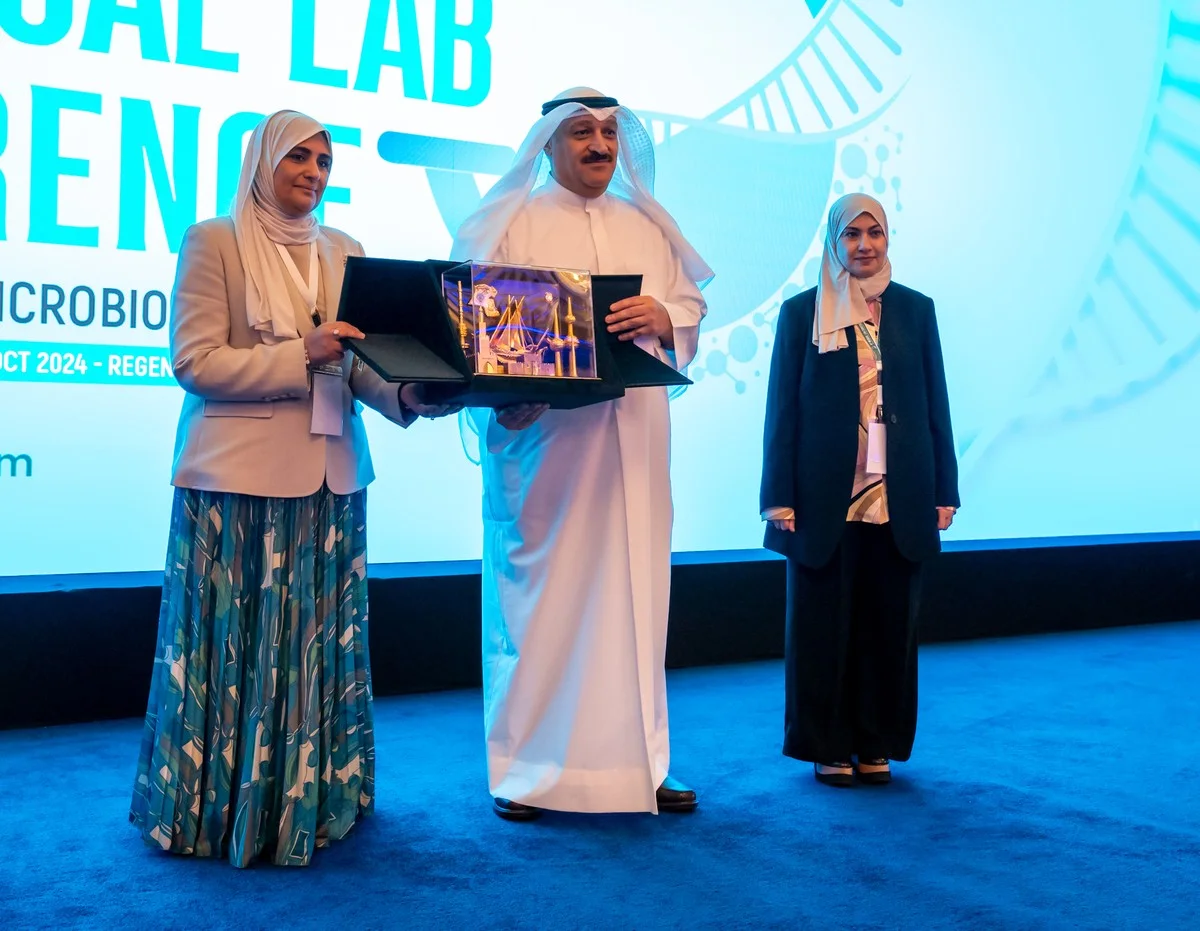21/10/2024
21/10/2024

KUWAIT CITY, Oct 21: Minister of Health Dr. Ahmad Al-Awadhi expressed concern on Monday over the rapid spread of antibiotic-resistant bacteria, a troubling phenomenon exacerbated by the indiscriminate use of antibiotics. He highlighted the ministry's awareness of this challenge during his opening speech at the 6th Medical Laboratories Conference, titled "Developments in Clinical Microbiology and Quality Control."
In his remarks, Dr. Al-Awadhi stated that the Ministry of Health has taken significant steps to tackle this issue. Since 2021, the ministry has appointed a specialized liaison officer to work with the World Health Organization (WHO) to gather comprehensive and accurate data on antibiotic-resistant germs from all microbiology laboratories. This data is submitted directly to the organization.
Dr. Al-Awadhi noted that, as part of this international cooperation, Kuwait has provided detailed data, including 59,926 samples collected in 2023, demonstrating its commitment to supporting global efforts against antimicrobial resistance. The ministry also shared information on fungi that can cause blood poisoning, which enhances the global system's ability to analyze and monitor these complex cases and positions Kuwait as a leader in accurate medical monitoring.
He emphasized that Kuwait has adopted strict and innovative policies to regulate antibiotic use across all health facilities, aligning with the ambitious goals of the Global Action Plan to Combat Antimicrobial Resistance and the AWARE program. The minister added that advanced methodologies for classifying and applying antibiotics have been implemented, reflecting Kuwait's commitment to maintaining a flexible health system capable of meeting challenges with the highest standards of professionalism and quality.
Dr. Al-Awadhi highlighted Kuwait's strategic partnership with the WHO through its participation in the global GLASS system, which enables continuous surveillance and monitoring of antibiotic resistance. This collaboration signifies Kuwait's long-term vision to lead globally and contribute to formulating decisive health responses.
He pointed out that microbiology laboratories in health facilities play a crucial role in diagnosing infectious diseases using advanced laboratory techniques. Their responsibilities extend beyond diagnosis; they also monitor healthcare-associated infections and identify their causes, particularly those that exhibit high antibiotic resistance, complicating effective treatment.
Dr. Rama Al-Safi, Director of the Medical Laboratories Department and Head of the Conference, stated that training medical staff and enriching their scientific knowledge is a primary goal of the Ministry of Health. She emphasized the importance of aligning professional skills with rapid scientific advancements in medical sciences to ensure the provision of high-quality health services.
Al-Safi noted that medical conferences, such as the one being held, facilitate knowledge exchange and aim to elevate the scientific and clinical standards among doctors, technicians in medical laboratories, and healthcare providers. She added that the ministry's medical laboratories conduct over 45 million tests annually through 29 laboratories in hospitals and specialized health centers, along with 98 laboratories in primary healthcare centers. The laboratories also adhere to an internal quality system and are part of more than 13 internationally accredited external quality control systems, ensuring the accuracy and efficiency of nearly 900 laboratory tests.
The conference will feature the latest developments in global quality control programs in medical laboratories and clinical microbiology, fostering collaboration among participants. Al-Safi announced that the two-day event will host 25 expert speakers, include over 20 scientific lectures, and offer three training courses, in addition to numerous discussion panels.
Dr. Ibtisam Al-Juma, Head of the Ministry’s Laboratory Departments Council, reaffirmed the ministry's dedication to maintaining high health and wellness standards by revealing the latest advancements in diagnosing infectious diseases. She reported that microbiology laboratories received more than 1,428,000 samples in 2023, conducting approximately 2,616,000 tests, which reflects the tremendous effort and commitment of the team of technicians and specialized doctors.
Al-Juma emphasized that the ministry’s laboratories operate under stringent local quality control standards, ensuring accurate and reliable laboratory results. She also mentioned the ongoing efforts to obtain international accreditation known as "ISO 15189," which further underscores the ministry's commitment to excellence. (KUNA)


